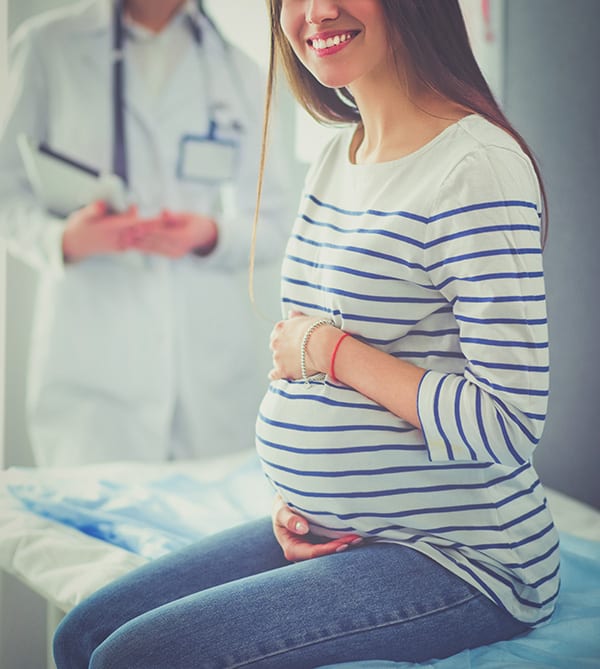Here at Vital Health, we envision a world of informed and aware women living pain-free lives full of health and purpose. As a part of our vision, we are on a mission to empower every woman with accurate and cutting-edge information. Part of that process starts with dispelling inaccurate information. Here are just a few of the endo myths that are still widely circulated, help us spread the word these myths are FALSE!


Myth #1: The pain is all in your head.
No, it’s in your pelvis, which is located down by your pubic bone. It’s not in your head which is above your shoulders. Trust your instincts, you know when (and where) you’re in pain.
Blog Post: What it Really Means to Have Endometriosis
Myth #2: Painful periods are normal
No, severe periods are never normal. Some research shows that up to two-thirds of women who suffer from endo had symptoms before they were 20 years old. If a girl’s or woman’s pain is severe enough to keep her away from school or from participating in day-to-day activities, it’s time to listen to her and find specialized help.
Additional Reading: Management of Pelvic Pain in Women with Endometriosis
Myth #3: Endometriosis is a rare disease.
Endo is not at all rare – it’s just not always diagnosed and treated properly. Endo affects more than 5.5 million women in North America and it’s estimated 176 million women have it worldwide.
Myth #4: Endometriosis always comes back.
Most cases of recurrence are really persistence and regrowth of disease that was not entirely visualized and appropriately removed. Many if not most women who have proper surgery (laparoscopic, near contact visualization, with wide excision of ALL disease) will NOT have a recurrence of the disease.
Learn More:
Does Endometriosis Have a Cure?
Patient Outcomes


Myth #5: Hormonal treatments can cure endometriosis.
Drugs based on synthetic hormones, like the Pill, Depo-Provera, Danazol, and Lupron, are routinely used to treat endo by slowing down the load of estrogen that feeds the disease. But in most cases, these hormonal treatments only quiet symptoms, they don’t rid the body of the disease or provide long-term relief. Only surgery (performed correctly) can do that.
Myth #6: Pregnancy cures endometriosis.
Pregnancy can quiet the symptoms of endo, just as hormonal drugs can. But it doesn’t make the disease go away. We’re not sure why pregnancy helps suppress the disease, but in most cases, endo symptoms resume with the reoccurrence of a woman’s menstrual period.

Myth #7: Hysterectomy cures endometriosis.
Hysterectomy alone is not an appropriate treatment for endometriosis. The treatment of endometriosis is the removal of endometriosis. A hysterectomy for a variety of reasons can be helpful in select cases, such as adenomyosis or where the uterus itself is very painful even if all the studies are normal, in addition to removal of the endometriosis. The issue is general OB/GYN’s often telling patients that if they have a hysterectomy it will cure their endometriosis, especially if both ovaries are removed. Dr. Cook has seen many women who were promised their pain would go away if they just had a hysterectomy, who did not have their endometriosis removed at the time of surgery, and continued to have endometriosis and pain after the hysterectomy. Dr. Cook has treated hundreds of women post hysterectomy, on Lupron, after menopause, and even a transgender patient (female to male who had a hysterectomy, ovaries out, and was on a male dose of testosterone) who had extensive endometriosis after hysterectomy. The issue of hysterectomy is a very personal one and medical indication depends on each patient’s situation. Hysterectomy can be part of endometriosis treatment, but it alone is not an appropriate treatment for endometriosis. It is just not that simple. We hope this helps to clear up the confusion on endometriosis and hysterectomy.
Myth #8: Any OB/GYN can treat endometriosis.
Surgical treatment of endometriosis requires very specialized techniques that are not taught in the standard OB/GYN residency. Endometriosis patients often require treatment of various co-conditions the routine OB/GYN physician is not familiar with.
Summary
Article Name
8 Endometriosis Myths
Description
If you or someone you love suffers from endometriosis then you should know these 8 endometriosis myths. Help us spread the word these myths are FALSE!
